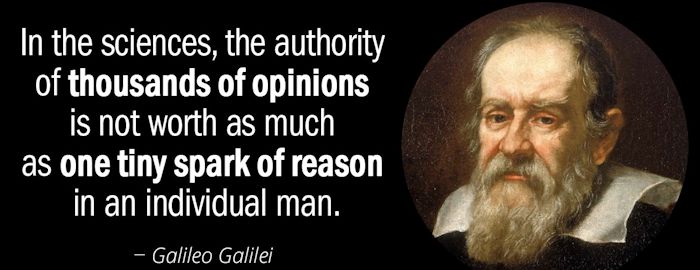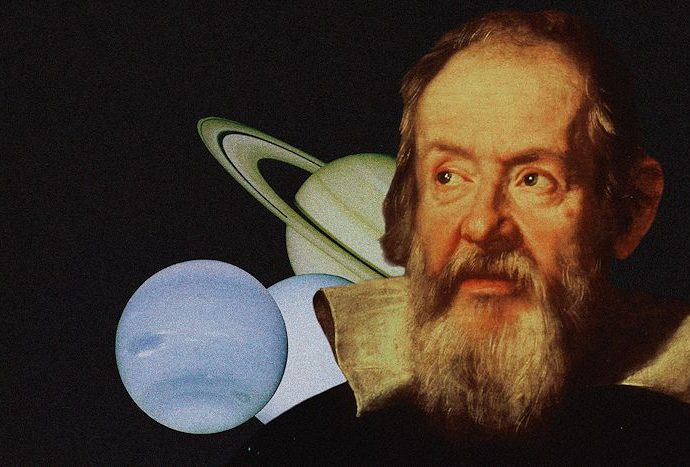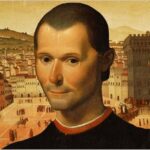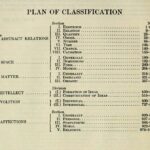If any one man laid the foundation of modern science, it was Galileo Galilei of Pisa. Gifted in mathematics and astronomy, he discovered the laws of falling bodies and, legend has it, demonstrated them by dropping objects from the top of the Leaning Tower.
Among other achievements, he calculated the parabolic motion of projectiles, described the motion of objects rolling down an inclined plane, and invented a military compass and the pendulum clock. But he is best known for his astronomical feats.

Hearing in 1609 that a spyglass had been invented in Holland, he built one of his own, turned it on the heavens and in short order discovered, and confirmed in his writings, that four large moons were orbiting Jupiter, that Venus had phases and that the sun had spots, all of which contradicted church dogma.
The universe, he insisted, “is written in the language of mathematics … without which it is humanly impossible to understand a single word of it; without these, one is wandering about in a dark labyrinth.” For Galileo’s sins, the Inquisition condemned him, compelled him to abjure his findings and placed him under permanent house arrest, where he remained till death. In his honor, the four largest Jovian satellites are called the Galilean moons, and a spacecraft named Galileo is even now successfully orbiting Jupiter.










